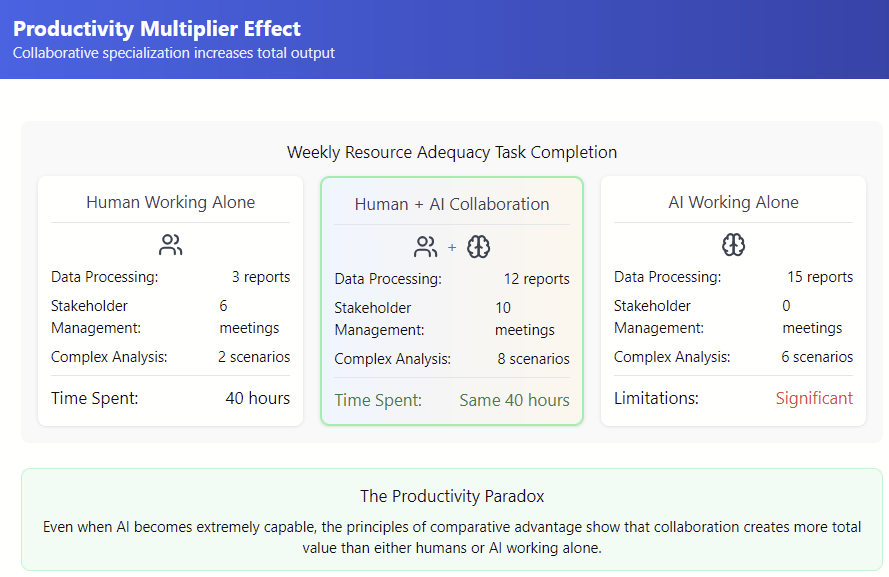Why AI might not take all of our knowledge work tasks, even it is better at all of them than us.
Comparative Advantage vs. Competitive Advantage
Competitive Advantage is a fairly common economic term that most of you might have heard of before. It captures the situation when one party can produce a certain good or service at a cheaper rate than others, said party would logically produce more of that good/service than others. Applying this mental model to measure AI displacement of human knowledge workers leads to the following logic:
If AI (referring to Generative AI here) can do all cognitviely valuable knowledge work tasks better than humans, from a cost, speed, or quality point of view, then that AI system should displace the entire human workforce.
A similar sounding concept called Comparative Advantage provides a very different conclusion.
While Competitive Advantage focusing on who can make something better than others, Comparative Advantage focuses on who can make something at a lower opportunity cost than another. Opportunity cost refers to what you give up to do something else.
It is not intuitive upon first explanation but I think it is a very important concept to understand because it can lead to a scenario where even if an AI can do every single task better than me at my current role, from an economically optimal point of view, I would still have tasks. These tasks would be the ones where my opportunity cost is lower relative to AI. The end result is more human-AI collaborative work instead of AI doing all of the work.
Here are some slides I asked Claude 3.7 to make for me to help me work through the concept of Comparative Advantage by putting myself in my current work role as the human worker being compared to AI.











Nice graphics. I’m curious, did Claude make them? What is your overall summary of this analysis.